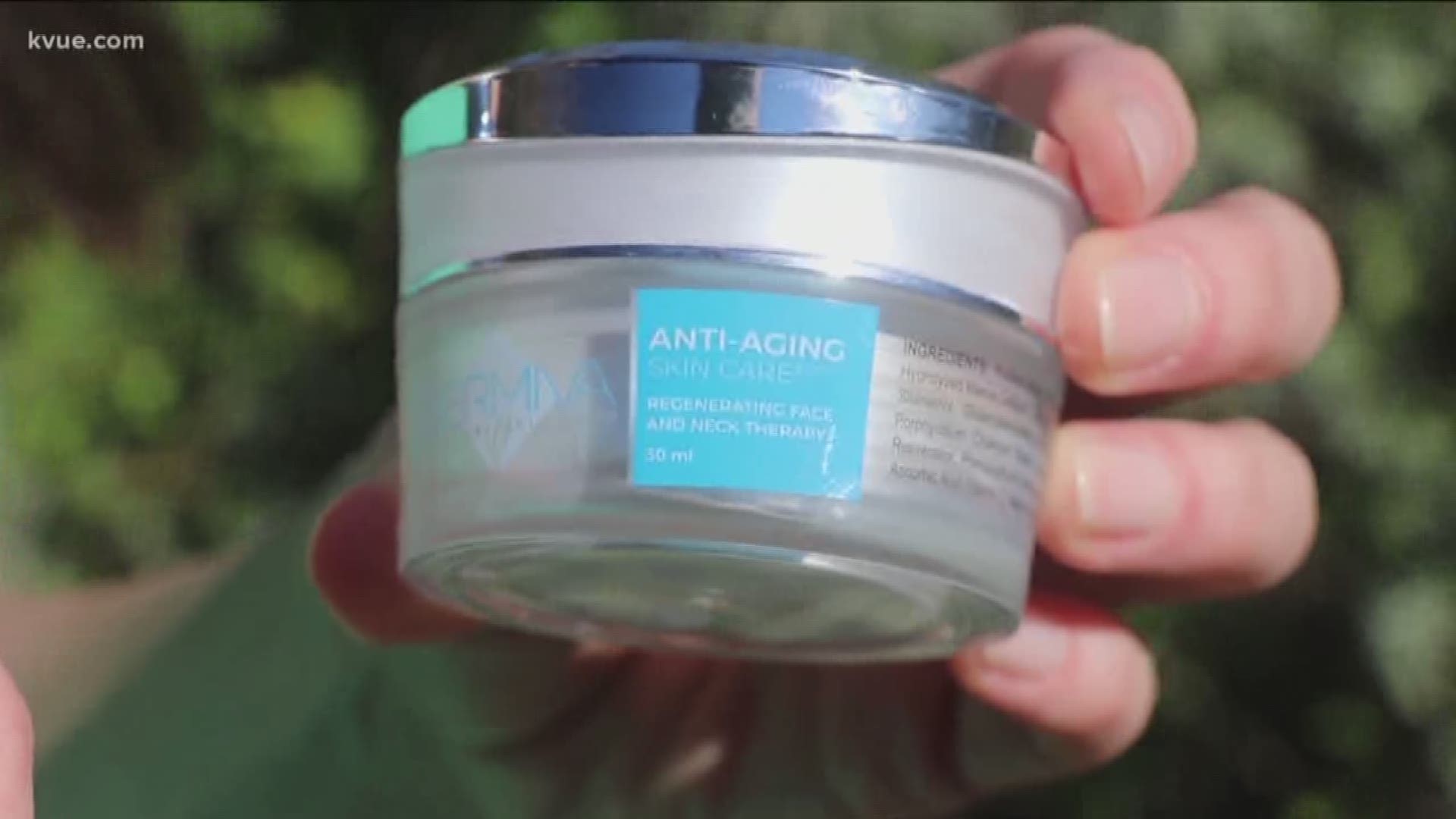AUSTIN — Watch out next time you see an ad that says "Online only limited offer!" or “Claim your exclusive trial now!"
Those may be tricks, according to investigators with the Central Texas Better Business Bureau (BBB).
The KVUE Defenders found people lose millions of dollars each year because of misleading ads.
It's maddening for people like Nicole Nye.
She was tricked after buying a skin cream online.
"It's supposed to be very gentle on your skin,” Nye said. "I'm putting it on, and it's burning my skin."
She thought it was a product with a celebrity endorsement. Turns out, it wasn't.
Then, Nye said she started seeing more than $200 a week coming out of her bank account.
Tracking down the company wasn’t easy. She couldn’t find any documents leading back to it.
So, she used Google. After calling around, someone referred her to a company, but wouldn’t disclose the name.
“I said, ‘You need to give me my money back,’ but they were like, ‘Yeah, good luck with that’,” she said.
The ad turned out to be a subscription service -- a service Nye said she never agreed to buy.
"There was no fine print, there was nothing," Nye said.
She's not the only person something like this has happened to.
“We noticed there is an increase going on,” Jarrod Wise, the Vice President of Communications for the BBB in Austin, said.
He called this a "subscription trap" and said companies use fake celebrity endorsements and faulty products to hook consumers.
Wise said the ads are marketed through search engines mostly, but a third are found on social media.
"There could be elements of this that could be illegal. However, the problem with this is that it's very -- it could be potentially deceiving because the fine print is buried so low that it's really hard to find," Wise said.
The BBB released a study this week that showed they took in 36,986 complaints and scam tracker reports nationwide over the last three years.
People lost an average of $186 each.
"Hopefully, law enforcement can step up and help stop some of these, but it's very difficult."
The Federal Trade Commission (FTC) stopped a group operating in San Diego over the summer. Court records show the marketers sold a variety of products including skin creams, electronic cigarettes and diet supplements.
What was marketed as "risk free trials," records show, would up being $98.71 and an automatic enrollment for additional products.
"It's just frustrating,” Nye said.
Nye got her money back after her bank investigated the charges.
For tips on how these subscription tricks work, click here.
If you have a story tip for the KVUE Defenders to investigate, send an email to defenders@kvue.com or call 512-533-2231.
Follow Erica Proffer on Twitter @ericaproffer, Facebook @ericaprofferjournalist, and Instagram @ericaproffer.

